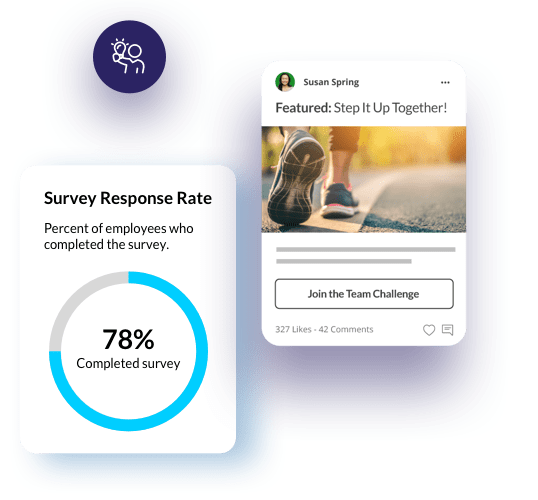Blog Post
The Importance of Optimism in the Workplace for Well-Being and Engagement

Explore more in Company Culture

Blog Post | Company Culture
Understanding company culture and employee engagement
Culture is the #1 factor in company success or failure. Learn what company culture and employee engagement really are — and how to develop a culture that your company (and people) need.

Blog Post | Employee Well-Being
LimeTime Session Recap: How the University of Pennsylvania Health System Creates a Culture of Care for its Employees to Thrive
Learn how a culture of care, infused by Limeade technology, lead to improved morale and overall well-being at UPHS.

Blog Post | Employee Well-Being
LimeTime Session Recap: The Evolution of Work-Life Harmony Panel
This thoughtful panel discussion explores the evolution of work-life harmony and the implications for employers in 2023.

Blog Post | Company Culture
5 ways to infuse a culture of care into your meetings
Infusing a culture of care into meetings has many business benefits—here are 5 tips to help make that happen.
Explore more blog posts from this author

Blog Post | Limeade Engage
Limeade Engage 2022 keynote speaker series: Getting to know Emmanuel Acho
Limeade Engage 2022 speaker Emmanuel Acho will join Limeade CMO, Dr. Patti Fletcher, for a fireside chat on inclusive conversations.

Blog Post | Limeade Engage
Limeade Engage 2022: Re-engage your workforce and rebuild employee experience
Join us at Limeade Engage 2022 — the leading well-being and employee experience industry event. Register for free today!

Blog Post | Inside Limeade
Limeade best of 2021 playlist on Spotify
End the year on a high note with our favorite feel-good hits that have inspired well-being, engagement and inclusion all year long.

Blog Post | Inside Limeade
Limeade Womxn playlist on Spotify
The Limeade Womxn Playlist on Spotify is a collection of songs meant to inspire, uplift and encourage whole-person authenticity for all.




